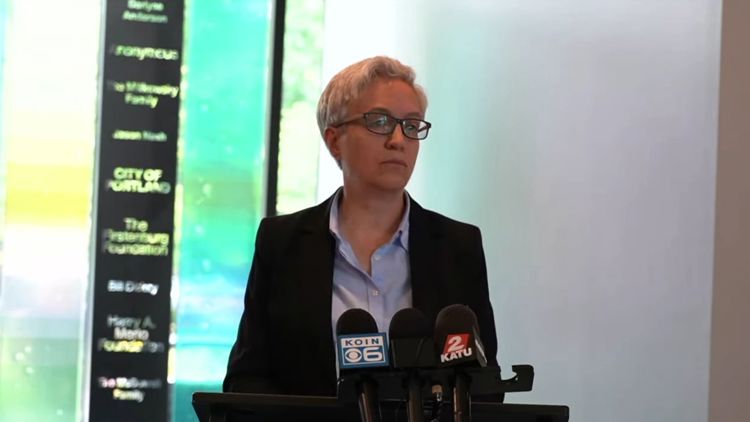
Oregon Gov. Tina Kotek celebrated the signing of five bills Wednesday aimed at supporting the state's behavioral health crisis.
These bills create various frameworks to support adult behavioral health and prevent youth substance use, along with changes to the state civil commitment law that make it easier to mandate treatment for people with severe mental illness.
“Mental health and addiction challenges touch lives and communities across Oregon," Kotek said. "We all agree that help and care should be there when you need it, no matter where you live or what you can afford. That requires a comprehensive approach that tackles the issue from all angles.
"These bills help fulfill that objective by giving providers more tools to intervene when someone is in crisis, supports the social workers and counselors who do the work, builds a strategy to prevent addiction among youth, and continues to increase the number of treatment beds available across the state to meet the need.”
Here's a breakdown of each bill and what it does:
House Bill 2059
The bill established the "Residential Behavioral Health Capacity Program" within the Oregon Health Authority (OHA) to expand infrastructure for adult behavioral health. Under the program, funds will be distributed to behavioral health providers whose proposed facilities, including withdrawal-management centers, residential treatment sites and psychiatric inpatient units that have capacity shortfalls.
The program in total was allocated $65.7 million to support facility development and hire seven full-time staff to help administer it, including analysts, compliance specialists and administrative support.
The bill passed the Oregon House 42-2 (15 lawmakers were excused and one absent) and passed the Oregon Senate 20-9 (one lawmaker was excused). It included an emergency clause, meaning the bill went into effect July 1, and it is set sunset on Jan. 2, 2027, unless further legislative action is taken.
See full text here.
House Bill 2024
It directs the OHA to create a statewide grant program to support recruitment and retention efforts in the behavioral health sector. Eligible providers can apply for funding to raise wages, improve benefits, expand training and enhance workplace safety. The measure also establishes Medicaid incentive payments tied to workforce development benchmarks.
To strengthen protections for workers, the bill includes provisions requiring safety training and recordkeeping, as well as gives employees the right to be reinstated with back pay if they face retaliation for reporting workplace issues.
The bill unanimously passed the Oregon House (14 lawmakers were excused and one absent) and passed the Oregon Senate 20-9 (one lawmaker was excused). It included an emergency clause with the bill going into effect this July.
See full text here.
House Bill 2005
The bill makes it easier to mandate treatment for people with severe mental illness. It broadens the legal standards for civil commitment and allows judges to consider past or future behavior in a civil commitment hearing as they assess whether someone is dangerous to themselves or others because of their mental illness.
RELATED: Oregon House passes bill that would lower standards for forced mental healthcare
It shifts away from where someone had to be an immediate threat to qualify for court-ordered case and moves toward a more preventative model. The bill also introduces a diversion option, allowing community mental health directors to propose treatment alternatives before commitment proceedings commence.
The bill passed the Oregon House 38-11 (11 lawmakers were excused) and passed the Oregon Senate 20-1 (one lawmaker was excused). The measure takes effect immediately as an emergency action.
See full text here.
House Bill 3321
The bill requires the Alcohol and Drug Policy Commission (ADPC) to create statewide strategy for youth substance use prevention. This involves a commission in collaboration with Oregon Health and Science University (OHSU), tasked with education and technical assistance to youth substance-use disorder providers and early intervention services. Around $1 million is being invested in this effort, according to Kotek's office.
The bill passed the Oregon House 41-1 (17 lawmakers were excused) and passed the Oregon Senate 23-2 (5 lawmakers were excused).
See full text here.






